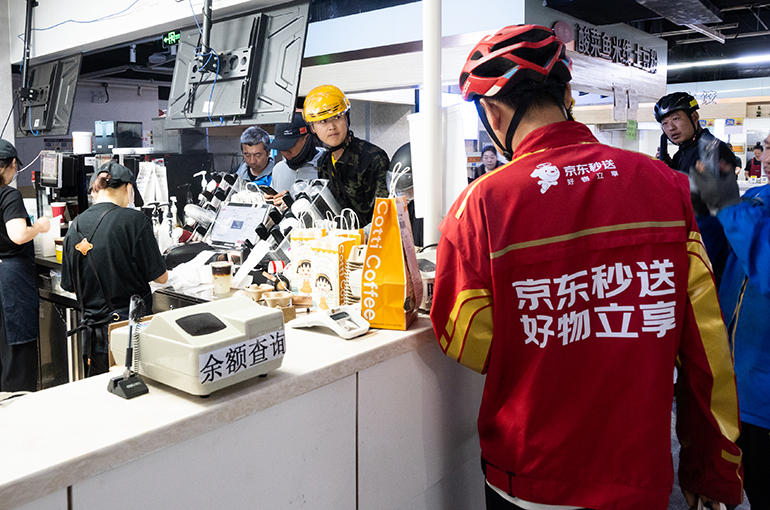Select Language:
Shares of the Chinese e-commerce giant declined after reporting its net profit was cut in half during the second quarter, largely due to losses from new ventures, including food delivery services.
As of 11:15 a.m. in Hong Kong, the company’s stock traded down 4.4 percent at HKD119.60 (approximately USD15.26). Its shares listed in New York also fell by 2.9 percent, closing at USD31.58 yesterday.
For the three months ending June 30, the company announced a 51 percent drop in net profit, totaling CNY6.2 billion (around USD863.5 million), compared to the same period last year. Meanwhile, revenue increased by 22 percent to CNY356.7 billion (about USD49.8 billion).
Revenue from innovative sectors, including food delivery, tripled to CNY13.9 billion (roughly USD1.9 billion). However, associated operating costs and expenses reached CNY14.4 billion and CNY14.5 billion respectively, resulting in an operating loss of CNY14.8 billion.
Marketing expenses surged 128 percent during the quarter, reaching CNY27 billion (approximately USD3.8 billion), mainly due to increased promotional efforts for new businesses, especially JD Food Delivery.
Despite the losses, the food delivery segment showed promising growth. During the 618 shopping festival, daily order volume surpassed 25 million, supported by over 1.5 million quality merchants. By the end of the quarter, more than 150,000 full-time delivery riders were employed on the platform.
“JD Food Delivery made solid progress regarding order growth, merchant expansion, rider recruitment, and synergy with existing retail and e-commerce operations, successfully achieving our initial strategic objectives,” said the CEO.
Since entering the food delivery market in March, the company has faced intensifying competition from Meituan and Taobao, which have increased their investments in instant retail.
The CEO commented, “From our perspective, we believe that aggressive competitive tactics have not fostered innovation or created additional value for the industry. Instead, they’ve disrupted pricing mechanisms and caused difficulties for merchants, making the model unsustainable.”
The food delivery service is deeply integrated into the company’s overall ecosystem, providing synergistic benefits with its core e-commerce platform.
It has driven notable traffic and user growth, with increases in user activity, user base, and purchase frequency. Cross-category purchases, especially in supermarkets, have also increased among food delivery customers.
In the second quarter, JD’s retail division—encompassing the e-commerce platform, JD Supermarket, and JD Mall—reported revenue of CNY310.1 billion, up 21 percent year-over-year. Electronics and home appliance sales saw growth of over 23 percent.
On July 31, the company announced plans to acquire Germany’s Ceconomy, the parent company of MediaMarkt and Saturn electronics retailers, for EUR2.2 billion (about USD2.5 billion).
“We see enormous value in Ceconomy’s brand strength, supply chain expertise, and market presence in Europe,” said the CEO. “Our online operations and tech capabilities can complement their strengths.”
The company’s international focus will increasingly center on strengthening supply chain capabilities, facilitating the global expansion of high-quality Chinese brands. This includes emphasizing localization strategies such as establishing local teams, sourcing, and shipping, alongside building thriving local retail and e-commerce businesses through strategic partnerships.
JD Logistics continues to reinforce its market leadership in China’s comprehensive supply chain industry, with plans to expand its overseas warehousing network. Revenue from this segment rose 17 percent to CNY51.6 billion in the quarter.
In June, JD Logistics launched a self-operated express delivery service in Saudi Arabia called JoyExpress, marking its official start of local operations. The company now operates warehouses in 23 countries and regions worldwide.






